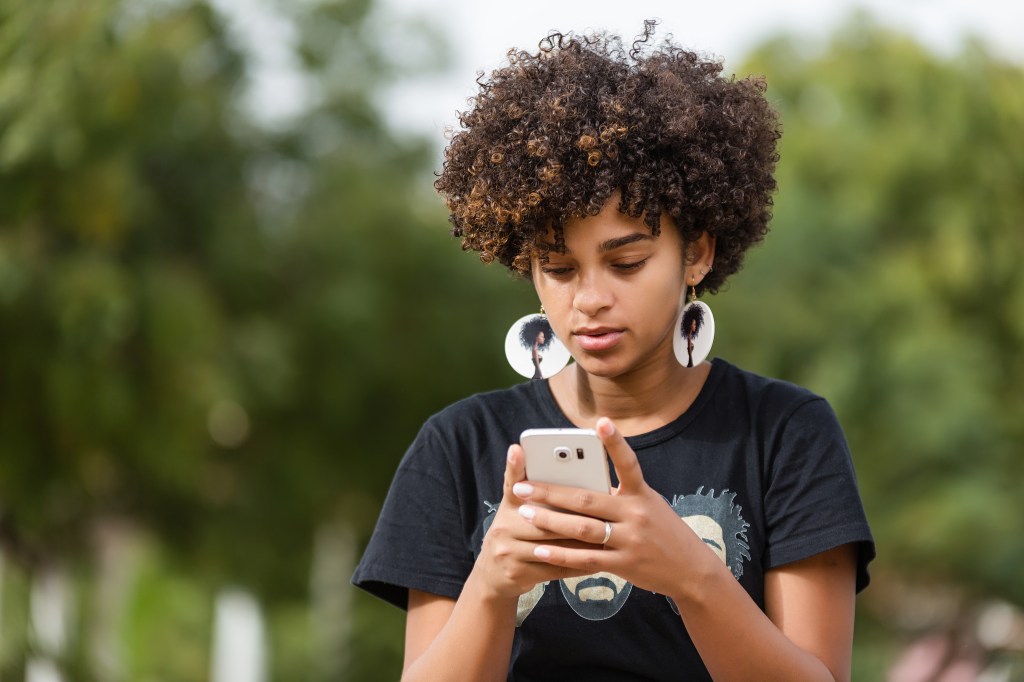Research Shows How Young People Seek Help Online for Mental Health

[ad_1]
It’s no secret that social media and the internet has transformed mental health care — how people search for it, use it, and choose what works for them — and that’s especially true for young people. But how exactly are teens and young adults finding mental health care online and what quality of care are they really receiving? A new survey sought to find out.
The survey, Getting Help Online from Common Sense Media, surveyed a nationally representative group of over 1,200 teens and young adults ranging in age from 14 to 22. Of those surveyed, researchers found that 65 percent have searched online for any type of behavioral health topics, while 53 percent say they’ve sought mental health information from websites focused specifically on health. Social media sites were also commonly used for mental health information, with YouTube (38 percent) and TikTok (34 percent) being the most searched.
Of course, the big concern for doctors and parents is that this information, while readily available, isn’t the most accurate. The good news is that teens and young people are considering that factor too. According to the survey, 89 percent of respondents consider the trustworthiness of a source to some extent, with 69 percent running the information they find by friends and family. The survey also found that Black and Latino young people were more likely to rate social media as “somewhat or very important” as a place to find mental health resources or information than white peers. In follow-up interviews and focus groups, researchers said, these young people of color reflected on the value of using social media for mental health support in the face of stigma in their families and communities.
So what about therapy? The survey found that about a quarter of respondents have attended online therapy, with 62 percent saying it was at least somewhat helpful. LGBTQ+ young people were “twice as likely” to have attended online therapy, and were also more likely to have looked for information online about behavioral health-related topics, like eating disorders, alcohol abuse, depression, ADHD, and anxiety. Researchers found that LGBTQ+ respondents searched these topics at “more than twice” the rates of non-LGBTQ+ respondents.
All in all, the numbers are encouraging, showing that young people are using the resources available to them but also being thoughtful about where they’re getting their information. At the same time, researchers acknowledged where there is room for improvement.
“Social media is an important source of mental health information, and tech-savvy young people are taking extra steps to verify the information they find,” said Amy Green, Head of Research at Hopelab, which was a partner in the study. She also noted that the findings “point to the necessity of evidence-based online mental health content for Black, Latinx, and LGBTQ+ young people.”
Overall, the study shows that online resources, therapy, and behavioral health apps have “begun to reduce barriers to access,” researchers wrote, especially for Black, Latino and LGBTQ+ youth. And while the resources are working to some extent, they concluded, “work remains to fully realize their potential to be both culturally appropriate and youth-centered.”
The takeaway for parents? There’s a good chance your kids are using online resources for mental health care — and that’s totally fine. Now is a good time for a quick mental health check-in and review on how to vet good sources. While talking about mental health isn’t always the most comfortable topic, it is always the right call, especially with your kids. Keeping that line of communication open is crucial, whether your child is taking advantage of online resources and teletherapy or not.
Before you go, check out our favorite affordable mental health apps:
[ad_2]






